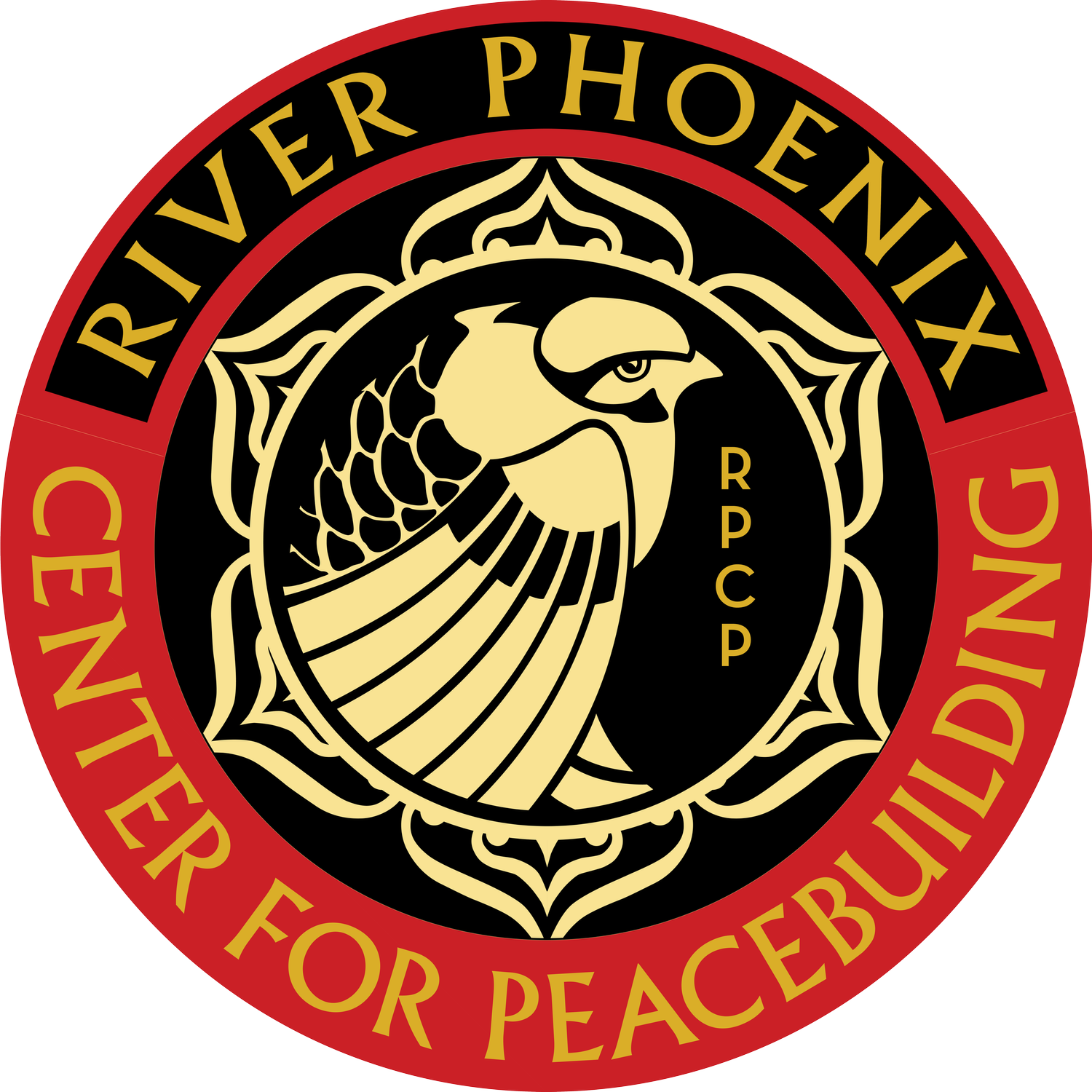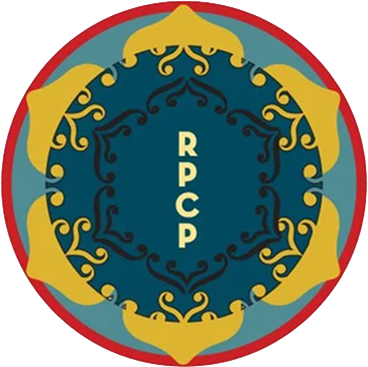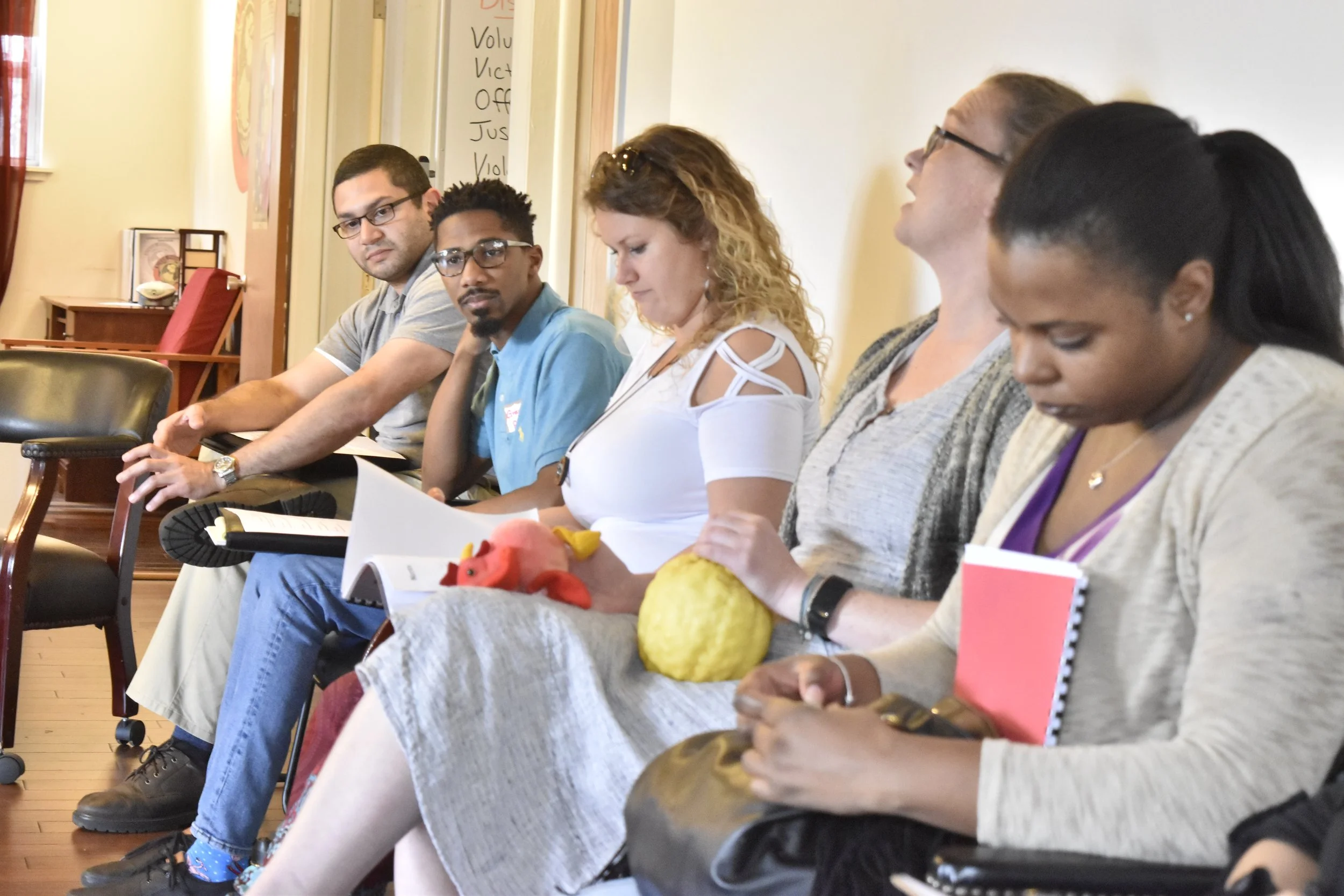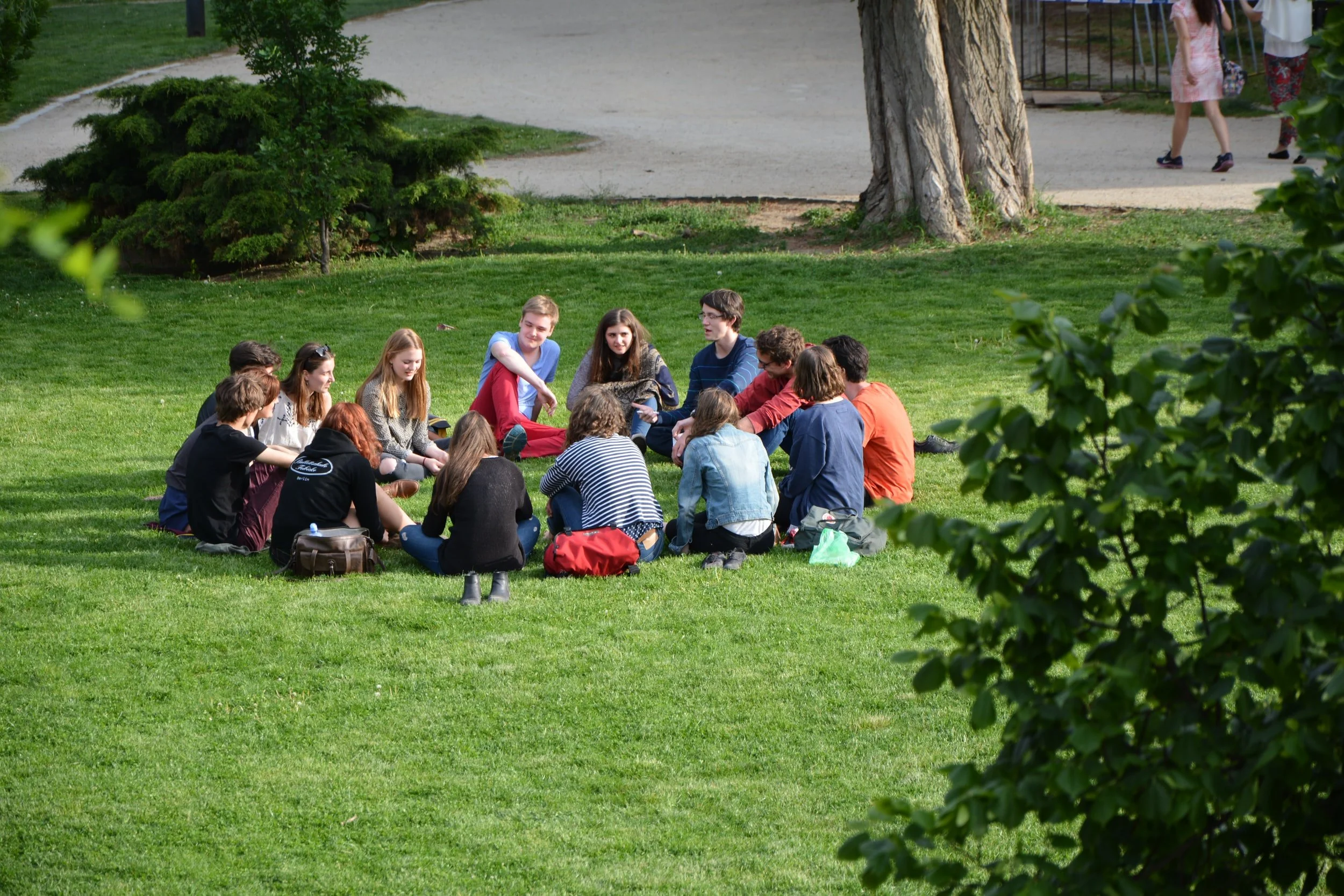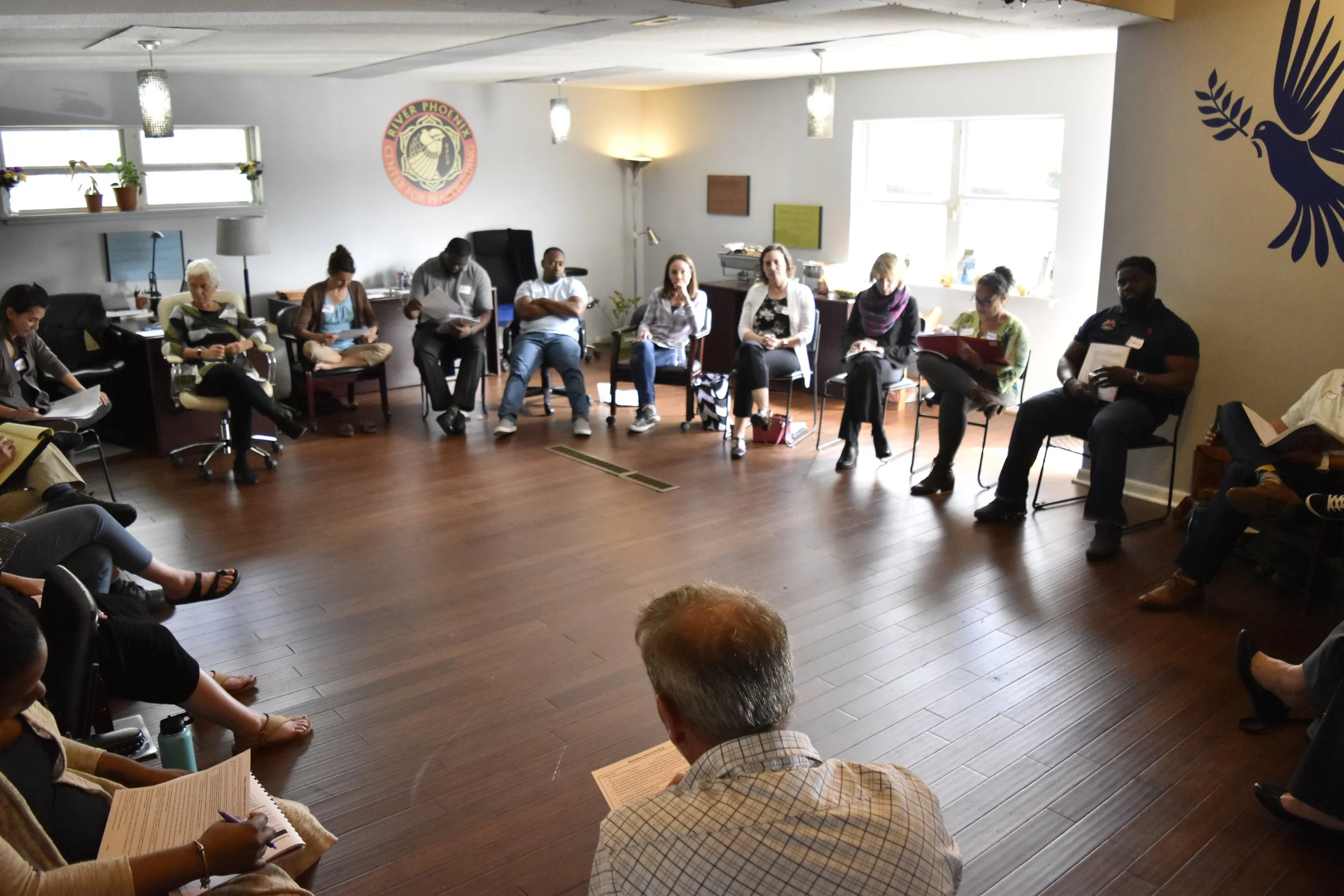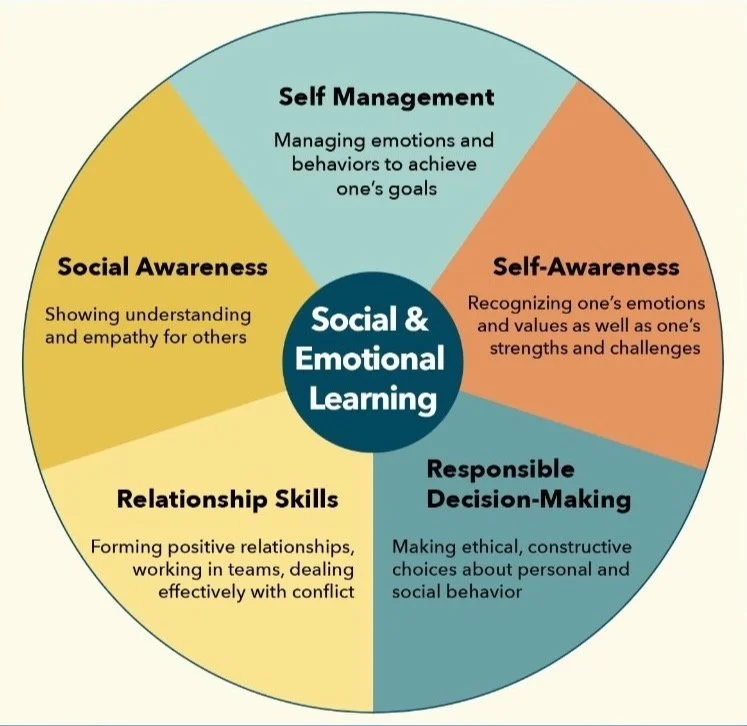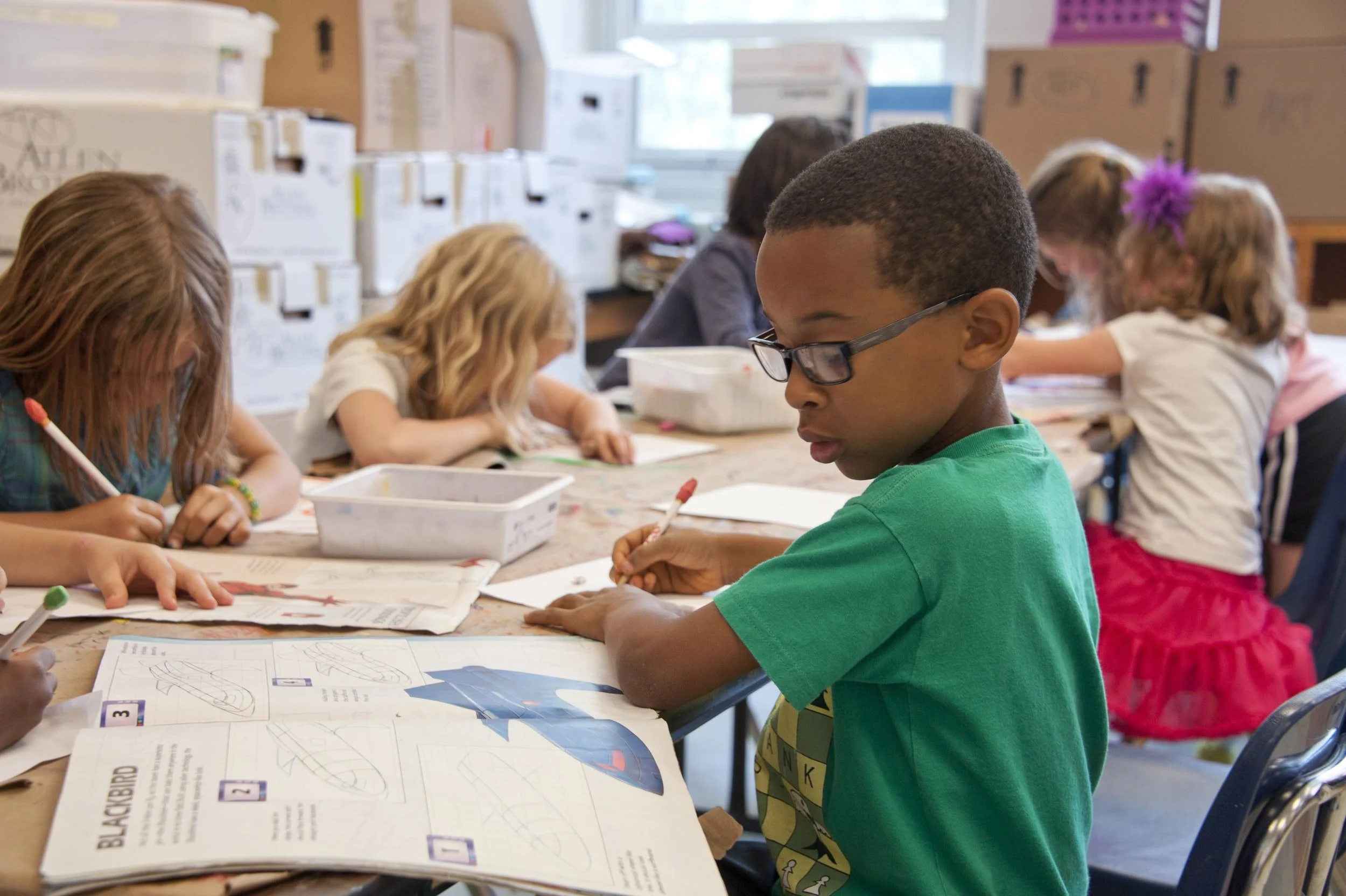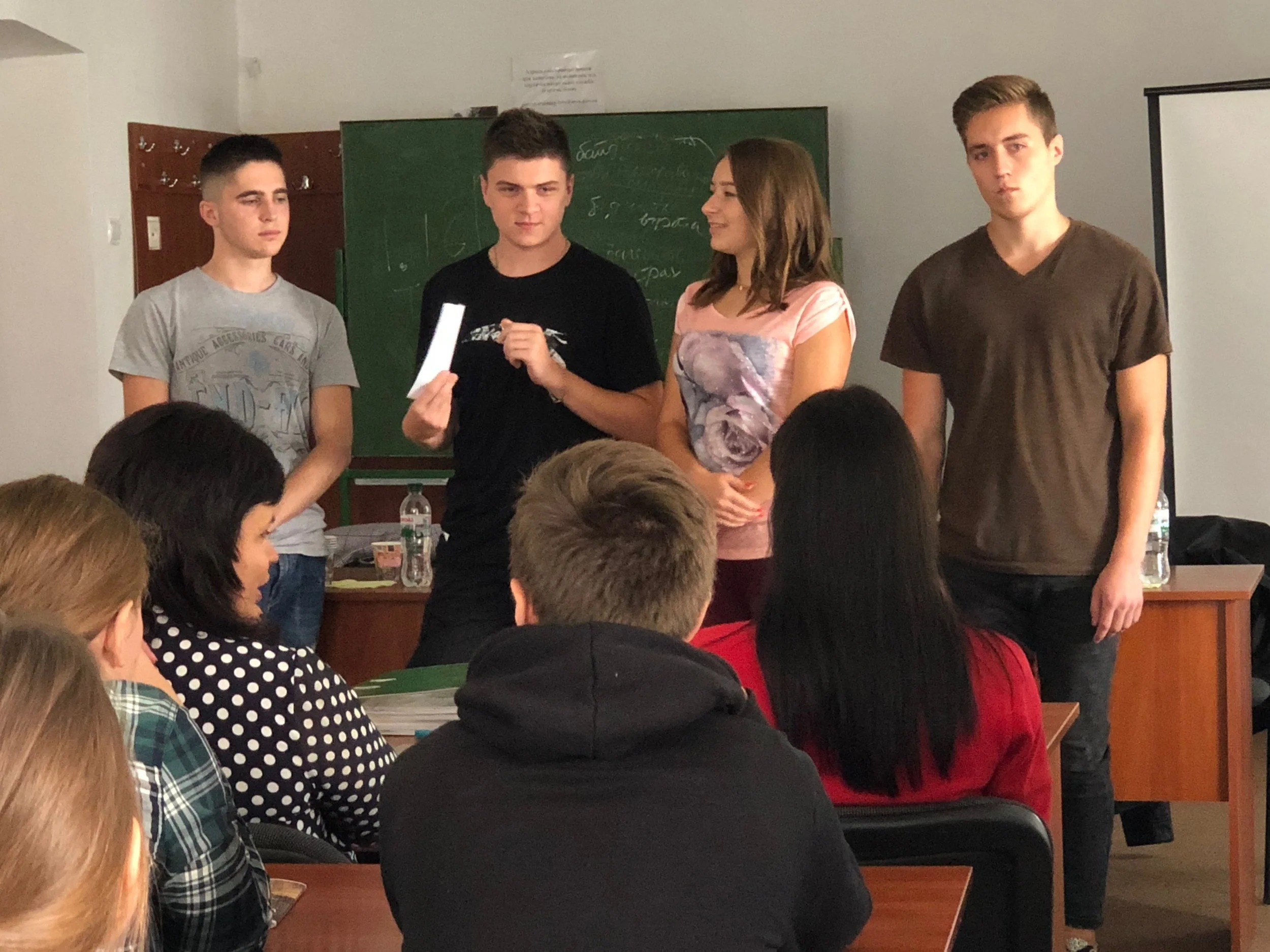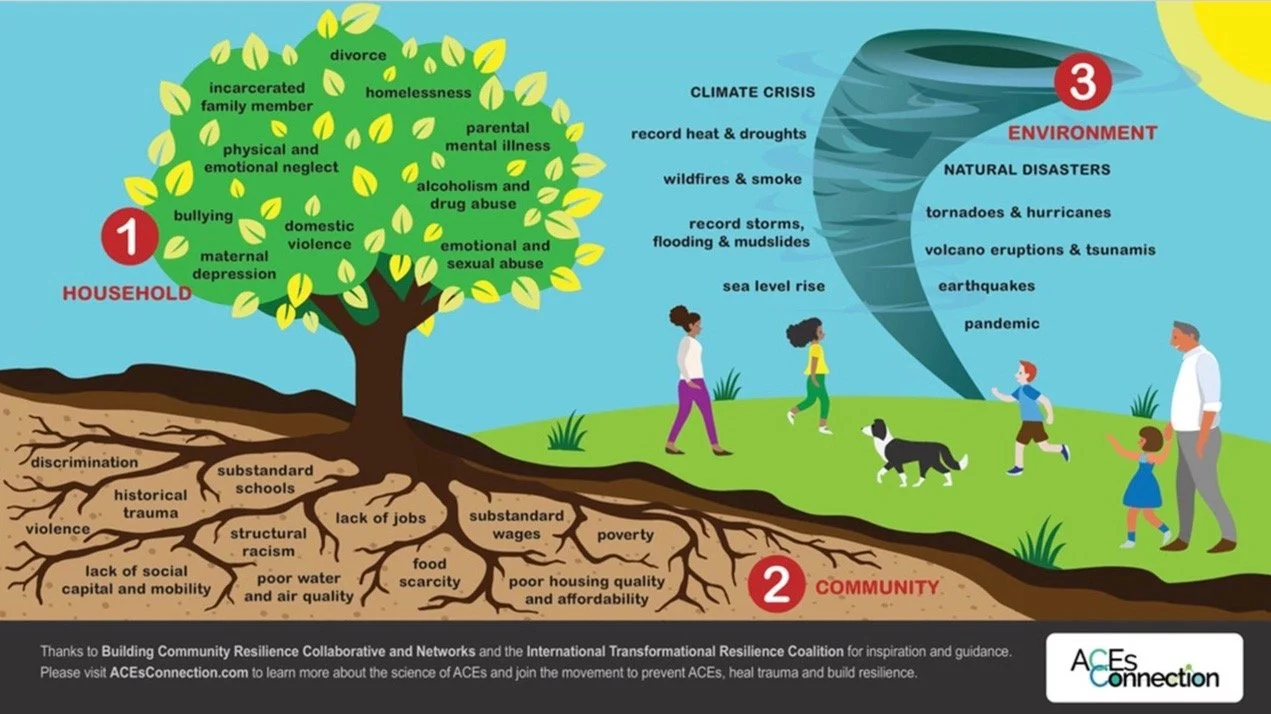Our Four Pillars
What is Restorative Justice?
Restorative Justice is a theory of justice that emphasizes repair and prevention, rather than punishment, as a response to incidents of harm. Whereas punitive justice focuses on who is at fault and imposing consequences or punishment, Restorative Justice addresses incidents of harm by giving voice to those affected (including impacted parties, responsible parties, and other stakeholders) and collaboratively exploring guiding questions such as:
What happened?
What was the impact?
How can we repair the harm?
What can be done to prevent this from happening again?
Through this process, participants develop a meaningful path forward based on the needs of everyone involved. This reparative approach can help transform individuals, relationships, and communities.
Restorative Justice philosophy has inspired a wide spectrum of formal and informal Restorative Practices that address conflict by seeking to repair and prevent harm. These strategies can be implemented within existing structures and institutions to build community, develop equity, and resolve conflicts.
Restorative approaches have been used successfully in the criminal justice system, schools, and communities around the world. Some of the benefits of a restorative approach include:
Click below to learn about our Restorative Justice Facilitator Training
Reduced recidivism - Increased satisfaction. Studies consistently show Restorative Justice has a high success rate in terms of participant satisfaction and reducing repeat offenses.
More efficient use of community resources. Restorative Justice saves money by employing creative solutions, implemented at the local level.
Impacted parties’ needs are acknowledged and addressed. Unlike punitive models which remove victims from the process, Restorative Justice is called a victim-centered approach because it largely focuses on what impacted parties need in order to achieve healing and satisfaction with the process.
Opportunities for responsible parties to make amends. Restorative Justice provides people who are responsible for harm with an opportunity to speak honestly, take meaningful responsibility, and express remorse.
Support and resourcing. In addition to centering the needs of the impacted party, Restorative Justice also attends to the unique needs and concerns of the responsible party as a member of the larger community by making use of resources available in that community, thereby disrupting patterns and cycles of harmful behavior.
Through this process, participants develop a meaningful path forward based on the needs of everyone involved. This reparative approach can help transform individuals, relationships, and communities.
What is Dialogue?
Dialogue is a facilitated process of sharing and listening designed to foster understanding, develop trust, strengthen relationships, and resolve conflicts. In dialogue, participants representing diverse groups, experiences, and perspectives engage in a deep conversation together to better understand themselves and others, especially those with whom they may disagree or hold in a negative light. Unlike debate, dialogue is not about winning or losing an argument. Neither is it a process of negotiation or compromise. Instead, dialogue is a unique opportunity for participants to collaboratively explore issues, perceptions, and concerns that may be present, and engage in authentic self-reflection as they learn about the experiences of others.
Dialogues can be particularly constructive when they bring together participants with disparate degrees of social power, either due to their position or their social identity. As dialogue is an inclusive and non-hierarchical process, it can be a way of elevating those whose voices may often be marginalized or even ignored. In this way, dialogue is not only a safe space for authentic discussion but a “brave space” where participants feel empowered with the courage to share honestly and listen with curiosity rather than judgment.
What is Social Emotional Learning
Social-emotional learning (SEL) is an integral part of education and human development. Also known as social-emotional intelligence, these competencies include: identifying and managing one’s own emotions, understanding others’ emotions and feeling empathy for them, communicating that empathy effectively, embracing conflict as a constructive, rather than destructive experience, and making ethical, responsible decisions.
RPCP has designed a 10 to 16 session curriculum on SEL that has been utilized with youth and adults. It has been taught in schools, at Marion Correctional Institution in Ocala, Florida, used as a diversion program within Florida Dept. of Juvenile Justice, with our Restorative Justice Training and Dialogues. It is foundational .
What is a Trauma Responsive Approach
The Effect of Childhood Trauma across a Lifetime
Dr. Nadine Burke Harris is a pediatrician who has been the Surgeon General of California since 2019. She is known for linking ACEs Adverse Childhood Experiences and toxic stress with harmful effects to health later in life. This ground-breaking TED Talk is a must to understand the underlying causes of certain behaviors and health issues.
Trauma is the result of exposure to highly distressing or life-threatening events or incidents. It can often start at very early in our children as the ACE (Adverse Childhood Experiences) Study has revealed. It can have seriously detrimental consequences on individuals' and communities’ physical, mental, and emotional well-being, impacting their capacity to function across various domains of life.
Personal adverse experiences such as abuse and neglect, family dysfunction, and domestic violence, or community-wide experiences such as structural oppression, a tragic incident, or a natural disaster, can result in trauma that may be difficult and long-lasting. Trauma can even result from the collective adverse experiences of a community, with effects that continue to manifest across various generations.
Understanding the impact of trauma on communities and individuals is critical to effective peacebuilding. Often, when violence or conflict occurs, we fail to realize the depth of underlying traumatic experiences and unmet needs that have contributed to that situation or incident. In all of our programs and services, RPCP emphasizes a trauma-responsive approach or a lens through which we understand the role of trauma in individuals’ behavior, capacity, or decision-making.
But simply understanding trauma and its impact is not enough to build peaceful communities. We must also develop strategies to disrupt cycles of retraumatization and overcome the adverse consequences of trauma that we see in ourselves, our families, our community, and our world. That is why RPCP’s Trauma-Responsive Approach also acknowledges and celebrates people’s capacity to heal from, transcend, or even transform their difficult experiences by finding sources of resiliency, whether they come from their own practices and beliefs, or community support systems. To this end, RPCP co-founded Peace4Gainesville and has partnered with various organizations and agencies to support the development of a trauma-responsive community here in Gainesville to build our community’s local capacity for resiliency by coordinating resources and services that can support people experiencing trauma and its effects.
